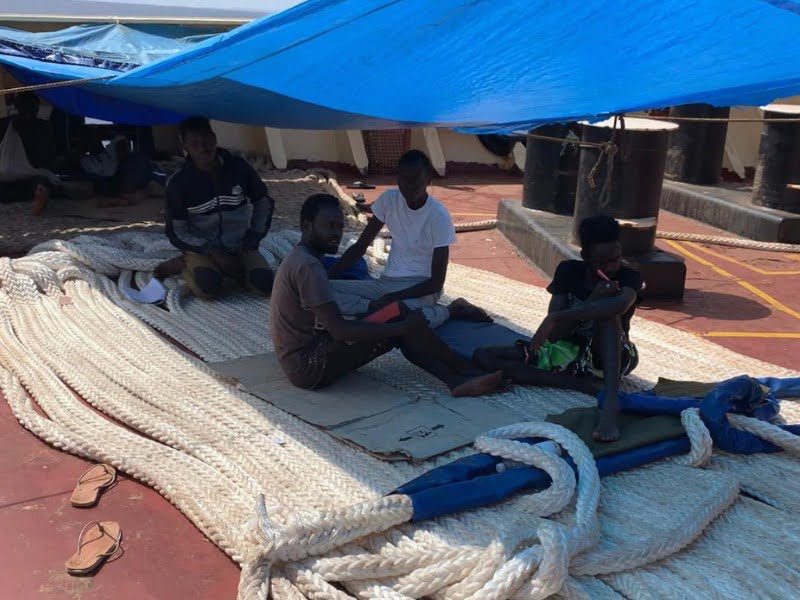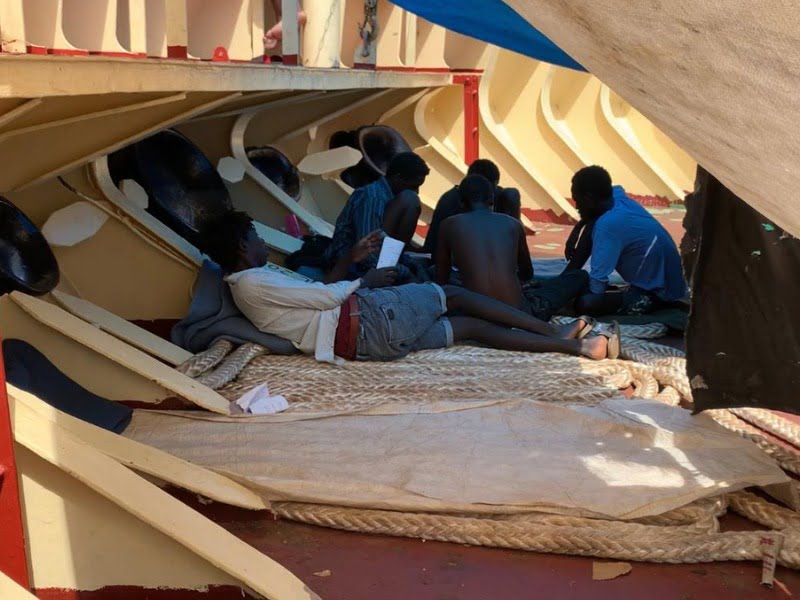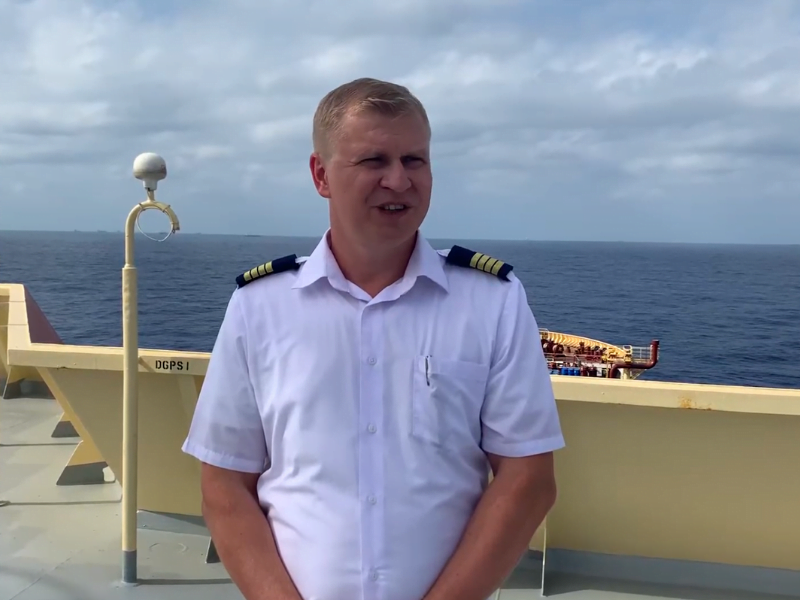“If there is no solution for us, we will go back to the sea by any means possible…Europeans don’t need us alive.”
These are the words of 27 migrants trapped aboard the chemical tanker Maersk Etienne, 16 nautical miles off the coast of southeast Malta. Their message, scrawled on the back of a paper plate, includes a tribute to the captain of the vessel who saved them, over four weeks ago, from a small, wooden boat that was in danger of sinking.
On 4 August, the captain received a call from Maltese search and rescue saying a small, wooden vessel was in distress and requested that he set a course to rescue those on board.
The captain headed for the small boat, which was beginning to disintegrate as weather conditions worsened. Bringing all aboard as the boat began to sink, he waited for further instructions from Maltese authorities, but he heard nothing further.
“The vessel is paralysed…we require an immediate solution to this situation. Please assist us,” captain Volodymyr Yeroshkin stressed.
Following their harrowing letter, three of those on board attempted to take their own lives by throwing themselves into the sea. A sign of desperation and perhaps a sober realisation that Malta and other EU States seem to care very little about their plight.
They were rescued quickly and are being provided with what care the crew are able to offer. But there is no solution on the horizon.
Despite sounding the alarm and asking the Maersk liner to rescue the 27 migrants, Malta has continually refused entry to the Maersk vessel and those aboard.
Over a month later, the migrants including a pregnant woman and several minors, have remained stranded while Europe engages in a geopolitical standoff.

The migrants and crew on board the Etienne are having to cope with difficult conditions.
Tunisia has also said it will not take the migrants and discussions with other EU countries have reached a stalemate.
Even a letter signed by 29 MEPs and addressed to the Maltese government has failed to lead to a resolution. In the letter, the MEPs said they would ensure that the migrants were redistributed between EU Member states, but Maltese authorities will not budge.
The Shift spoke with Tommy Thomassen, the Chief Technical Officer of the Maersk tanker, who said time is running out and a solution needs to be found soon.
“Our biggest concern is the safety of the people on board – both the migrants and the crew. Frustrations are increasing, tensions are growing, and we are concerned for the physical and psychological wellbeing of everyone on the ship,” he said.
Thomassen explained that when the captain received the request from Malta to rescue the migrants, he compiled without hesitation.
“It was a precarious, time sensitive situation. Save lives first, ask questions later – there was no indication of what would happen after,” he noted.
Maersk officials are also concerned about what kind of precedent the current situation is setting. Thomassen told The Shift that, for the crew, responding to SOS calls is “in their DNA” and they will continue doing so but said other ships may not.
“Other shipping lines, seeing the situation we are in, may not be so quick to respond to requests for help. The situation sets an unfortunate precedent for seafarers that is not encouraging,” he added.
Onboard the vessel, conditions which were already tough are worsening. The Etienne has a crew of 21, including the captain – a capacity that has more than doubled since the migrants were rescued. The ship was built for commercial purposes, not for providing long term humanitarian care to migrants.

The crew have provided what they can to the migrants after Malta shifted the burden onto the commercial vessel.
Thomassen says his crew are “heroes” and have done what they can to accommodate the migrants. Blankets, mattresses, food and water are all being supplied to those in need. But if things continue for much longer, those supplies and the patience of those involved will begin to run out.
“We need a solution urgently. When food starts to run out we will have to request more. We are not allowed into Maltese territorial waters, but I hope we would not be refused, as it would be inhumane, and the situation is already inhumane enough,” he said.
As Malta began the coordination of the rescue of the 27 migrants, they had the duty to assign a port of safety, according to international law. Instead, they involved a commercial vessel and then refused to take responsibility for the outcome of the situation.
“This is a complex situation that should be in the hands of politicians, not us. We have done our duty, now it’s up to the authorities to do theirs,” Thomassen said.
But this is not the first time Malta has failed to provide a safe harbour to those rescued at sea. In June, following a month of refusals, the government reluctantly allowed 425 migrants to disembark in Valletta. Those aboard were in a desperate state, having lived in cramped and frugal conditions for some 40 days.
Amnesty International has also condemned the lack of action from the Maltese authorities and other countries. In a recent report, the organisation highlights the country’s “multiple failures to respect and protect the rights of refugees and migrants at sea” in the first half of 2020.
The organisation accused the Maltese authorities of pushing people back to Libya, a war-torn country where they are systematically abused. Amnesty International also said that people rescued at sea were denied disembarkation, the authorities delayed reaction to distress calls, and they had illegally detained individuals onboard private vessels for extended periods of time.
They called on the Maltese government to change course and hold those who are responsible for violations of human rights to account.
The Shift also reported that the government plans to pay more than €1 million per month to charter a large vessel to host migrants offshore.













